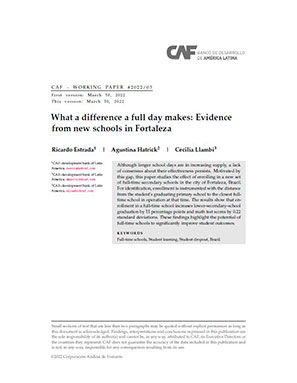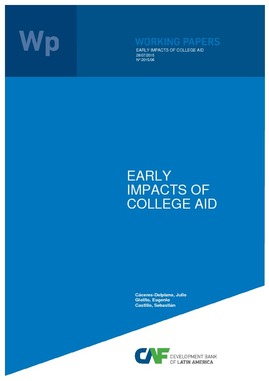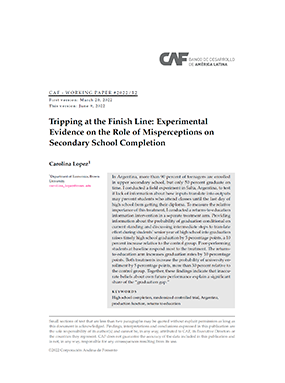What a difference a full day makes: Evidence from new schools in Fortaleza
Resumo
Although longer school days are in increasing supply, a lack of consensus about their effectiveness persists. Motivated by this gap, this paper studies the effect of enrolling in a new set of full-time secondary schools in the city of Fortaleza, Brazil. For identification, enrollment is instrumented with the distance from the student’s graduating primary school to the closest fulltime school in operation at that time. The results show that enrollment in a full-time school increases lower-secondary-school graduation by 11 percentage points and math test scores by 0.22 standard deviations. These findings highlight the potential of full-time schools to significantly improve student outcomes.
Assunto
País / Región
Data
2022-03-18Cite esta publicação
Item que pertence à coleção

Items Relacionados
Early Impacts of College Aid
We analyze the impact of an expansion in government-guaranteed credit for higher education in Chile on a sample of elementary and high school students. ...
Tripping at the Finish Line Experimental Evidence on the Road of Misperceptions on Secondary School Completion
In Argentina, more than 90 percent of teenagers are enrolled in upper secondary school, but only 50 percent graduate on time. I conducted a field ...
Will you marry me, later? Age-of-marriage laws and child marriage in Mexico
We provide empirical evidence on the impact of raising the minimum age of marriage to 18 years old on child marriage, early motherhood, and school ...




